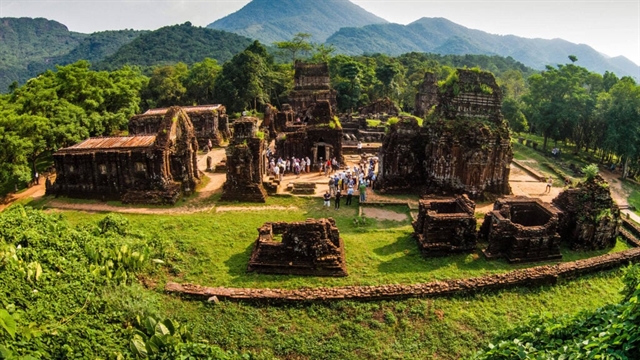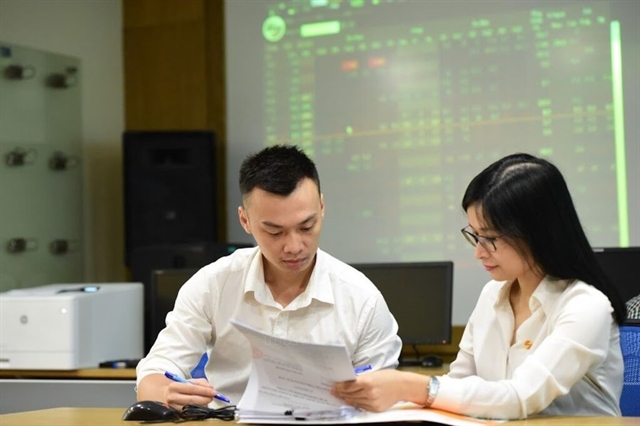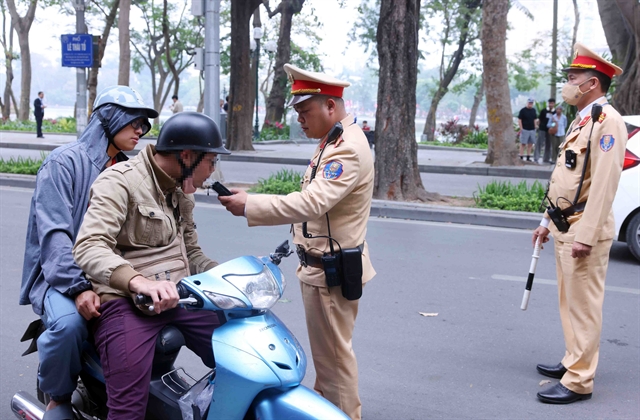 Society
Society
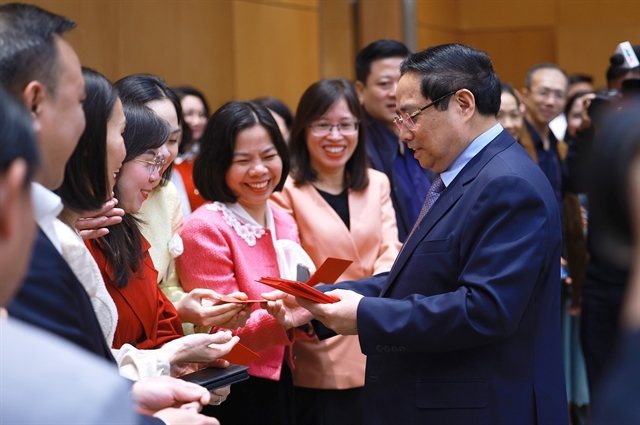
Hà Nội’s agriculture sector is projected to grow at least 3 per cent in 2021 under a recently-issued plan on agriculture and rural development.
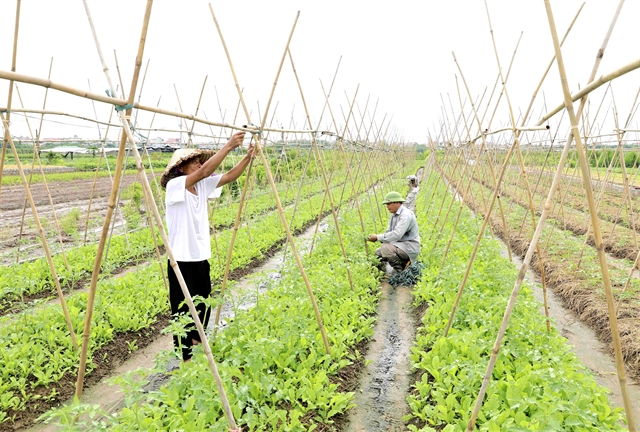
|
| A 545ha centralised safe vegetable production area in Thường Tín District of Hà Nội. — VNA/VNS Photo Vũ Sinh |
HÀ NỘI — Hà Nội’s agriculture sector is projected to grow at least 3 per cent in 2021 under a recently-issued plan on agriculture and rural development.
The city also aims to have all communes and three more districts recognised as new-style rural areas, and 20 communes recognised as advanced new-style rural areas.
The average income of local farmers is hoped to increase to VNĐ58 million (US$2,500) compared to VNĐ46 million in 2018, and the rate of labourers in rural areas with stable jobs maintains at above the current rate of 95 per cent, according to the plan.
To that end, the municipal Department of Agriculture and Rural Development will advise the city administration on policies and solutions and build concentrated and large-scale farming models, aiming to attract investors to the sector.
The department will promote the application of science and technology, as well as restructuring, to build a modern and comprehensive agricultural sector.
The local agricultural sector will work to promote production linkages, optimise brand names and trademarks and expand high-tech and organic agriculture to churn out safe products with clear origin.
Hà Nội’s agriculture sector is facing a host of difficulties from the COVID-19 pandemic, which requires it to continue with restructuring and switch to new crops to ensure growth.
Director of the municipal Department of Agriculture and Rural Development Chu Phú said the agriculture sector in the capital targets 89,500ha of rice, 1.8 million pigs and 38 million poultry heads this year, and is expected to grow 6.26 per cent.
Secretary of the Hà Nội Party Committee Vương Đình Huệ asked that pig breeding be stepped up to curb the rise of the consumer price index and that more fruits and vegetables be grown.
He suggested using industrial and non-cultivation land to meet food demand, issuing mechanisms and policies to use existing agriculture land effectively, and attracting unemployed people from rural to urban areas.
Huệ asked the Steering Committee on Programme No 02-CTr/TU from the municipal Party Committee on the development of agriculture, new-style rural areas and improving farmers’ lives during 2016-20 to increase resources for public investment, contributing to economic growth and improving workers’ incomes.
The city’s Farmers’ Union has been assigned to guide farmers on production, connect them with scientists, businesses, and banks, and form new-style co-operatives.
The Hà Nội Department of Agriculture and Rural Development has issued a list of 11 projects that need investment for between now and 2025.
They include high-tech agriculture projects in rural An Thượng and Song Phương communes of Hoài Đức District, and Hiền Ninh, Thanh Xuân and Tân Dân communes of Sóc Sơn District.
Several concentrated livestock slaughtering projects are also open for investment such as those in Quang Lãng and Tri Thuỷ communes of Phú Xuyên District, Đồng Thái Commune of Ba Vì District, Trạch Mỹ Lộc Commune of Phúc Thọ District, and Minh Phú Commune of Sóc Sơn District.
The city is striving to have 10 districts recognised as new-style rural areas in 2020, according to a local official.
Hà Nội has six new-style rural districts, namely Đan Phượng, Đông Anh, Thanh Trì, Hoài Đức, Quốc Oai, and Gia Lâm.
To achieve the target, Vice Secretary of the municipal Party Committee Ngô Thị Thanh Hằng requested the municipal Department of Agriculture and Rural Development speed up the disbursement of a VNĐ700 billion (more than $30 million) aid package for districts and communes to develop agriculture, build new-style rural areas, and improve local living standards.
According to the director of the department Chu Phú Mỹ, the city’s agricultural growth declined by 1.17 per cent year-on-year in the first quarter of 2020 due to African swine fever and the COVID-19 pandemic.
The national target programme on building new-style rural areas was initiated by the Government in 2010. The list of criteria includes the development of infrastructure, the improvement of production capacity, environmental protection, and the promotion of cultural values. — VNS

